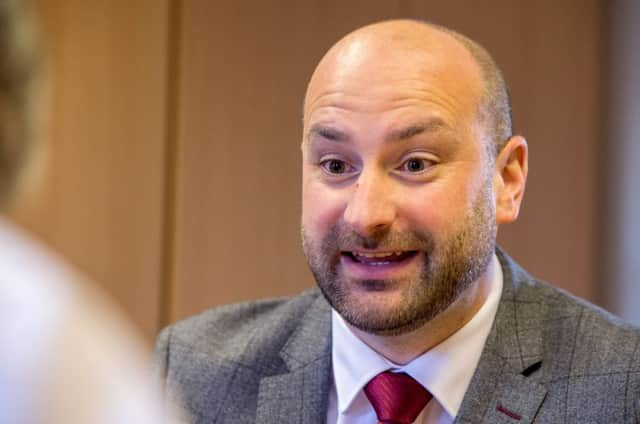Council tax rise and use of £4million in reserves to protect Lincolnshire's frontline police officers


Police and Crime Commissioner Marc Jones has proposed a 1.97% increase in the police precept element of the council tax, meaning esidents of Lincolnshire will be asked to pay as little as 5p extra a week in order to protect the number of front line police officers.
But the PCC’s office will still need to use nearly £4 million from its shrinking reserves to protect services.
Advertisement
Hide AdAdvertisement
Hide AdThe full budget proposal will be reviewed by the Police and Crime Panel next Monday, February 6.
If the proposed funding from the Government for Lincolnshire next year is confirmed it would put the county third from bottom in terms of grant provided per head of population. The Government allocates Lincolnshire just £88 per head of population, compared to £99 for Norfolk, £119 for Nottinghamshire and £132 for Humberside.
The plan sets the PCC’s budget at £118m, of which just £46m comes from council tax and £3.8m from reserves. The small increase in precept will allow Lincolnshire Police to maintain its current levels of front line police officers.
The proposed budget comes after the PCC’s annual survey demonstrated overwhelming support for additional funding for the police.
Advertisement
Hide AdAdvertisement
Hide AdIn the survey, which received 1757 responses - a 27.4% increase on the previous year, more than 91% (1604) said they supported additional funding the police service.
However the budget papers sent to the Panel do warn that, unless Lincolnshire receives a fairer allocation of central funds in the future, services in the county are at threat.
The Government has pledged to review the current funding formula later this year but the PCC’s office has said that, based on current funding levels, the county will face a funding gap of nearly £10m from 2018 to 2020.
The Commissioner travelled to the Home Office yesterday (Mon 30th) in person to meet with the Policing Minister Brandon Lewis to discuss the funding situation face to face.
Advertisement
Hide AdAdvertisement
Hide AdPCC Marc Jones said: “There’s no doubt that the budget has been a challenge. We receive much less per head of population than almost every other area in England and Wales and I continue to make a strong case to the Government to get our residents a deal that makes Lincolnshire Police sustainable for the future.
“But I am positive about the year ahead. I believe that even with the pressures on our finances we can innovate and provide an even better service to the communities of Lincolnshire.
“I am committed to ensuring our residents get the best possible service for the money we spend and I will do everything possible to ensure that our communities are, and feel, safe.”
KEY FACTS
* The majority of council tax payers in Lincolnshire live in Band B properties – who will see a 6p rise per week (£3.08 per year)
Advertisement
Hide AdAdvertisement
Hide Ad* The number of crimes handled per front line officer in Lincolnshire is 59.3 crimes, the 18th highest in the country – higher than the national average of 58.9 crimes per officer and the most similar group of forces are at 51.5 crimes.
* The budget includes an increase in spending on new technology and vehicles of £4.2m and a reduction of over a £1m in building schemes.
* The police element of a resident’s council tax bill typically makes up just 14 per cent of the overall amount – with the rest going to Lincolnshire County, district and parish councils.
* Lincolnshire has the third lowest central funding per head of population at £88. The lowest are Surrey (£85) and Dorset (£86). The highest are Merseyside (£177), Cleveland (£162) and the West Midlands (£157).
Advertisement
Hide AdAdvertisement
Hide Ad* Lincolnshire has the second lowest spend per head on policing at £155.60. The lowest is Essex at £159.90 which has a substantially larger number of residents. The highest are Merseyside at £230, Cleveland at £229.80, North Wales at £216.30 and South Wales at £214.40.